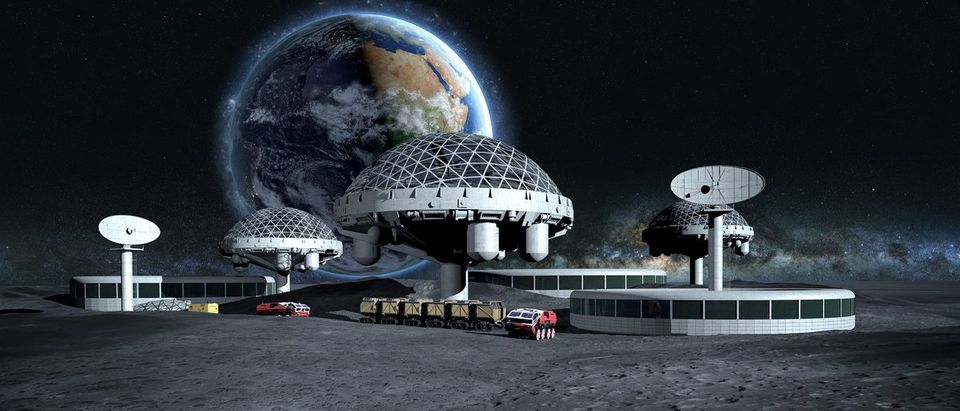Private companies could begin mining asteroids next year and building cities in space in the next 30 years, according to the CEO of a space mining company.
“Its our goal in 30 years to provide all the material and equipment needed to build cities in space,” Daniel Faber, the CEO of the asteroid mining company Deep Space Industries (DSI), told The Daily Caller News Foundation.
DSI announced plans Tuesday to launch a surveying probe that will arrive at an asteroid by 2020
“Our material could be used to build very large solar concentrators and arrays, large radio dishes, fuel tanks, structural members and maybe one day a habitat,” Faber said. “Asteroids are made of basically the same stuff that planets are made of, everything we need is in there. We can even make oxygen out of mined water.”
Faber believes his company can sell air, building material, water and propellant to other companies in space cheaper than launching them from Earth. DSI plans to launch a probe called Prospector-1 to an asteroid next year to rendezvous with a near-Earth asteroid by 2020 to assess its value for mineral mining. DSI could end up following its survey with the first commercial space mining mission.
“We need to verify the mineralogy or the rock mechanics, Prospector-1 is part of that,” Faber said. “The second step is to check all our technology . After that, we can scale up to a fully operational mining mission by the mid-2020s.”
The Prospector probe will weigh only 110 pounds when fueled, and will use a new water propulsion system that will eject super-heated water vapor to generate thrust. DSI intends to mine water from asteroids to provide future spacecraft with the ability to refuel in space.
“The first thing we’re looking for is asteroids with a lot of volatiles, mostly water that we can use as propellant. That’ll let us make our own fuel in space and bring it back,” Faber continued. “We just built our first water based thrust which can be launched as a secondary payload on other rockets. Our thruster has a specific impulse comparable to most solid rocket motors. Ultimately, we’re looking to build a water based thruster big enough to move asteroids of a hundreds meters in diameter and up.”
The company plans to use its water-based thrusters to rendezvous with asteroids, refuel, then return to Earth’s orbit with additional water and other materials for sale.
“We’ve gotten letters of interest from several organizations already about being supplied with fuel and materials in orbit,” Faber said. “The cost of lifting raw material into Earth orbit is extremely high. If we can deliver that material into orbit there’s a huge market for that. Just to get out of Earth’s gravity well you end up using an enormous amount of rocket fuel. It uses orders of magnitude less fuel to move material from an asteroid to Earth orbit than it does to lift stuff from Earth into orbit.”
The U.S. Senate unanimously passed a bill in November, later signed by President Barack Obama, legalizing asteroid mining. Under the new law, companies have property rights to the resources they extract from asteroids, such as platinum and water. Experts at think tanks routinely noted the lack of legal recognition of property rights in space as one of the major road blocks to the development of space-based industries.
“Congress passed legislation that allowed asteroid miners to specifically own the material they extract was a huge risk reduction for us,” Faber concluded. “Other nations like Luxembourg are already following along.”
Previously, the Outer Space Treaty declared that no nation could own property in space. The wording of the treaty is vague enough that companies want to ensure they’ll own the resources they mine from asteroids before investing. The bill Congress passed would make those property rights official, at least under U.S. law.
The recent successes of private companies such as SpaceX, Blue Origin, and Bigelow Aerospace have encouraged a wave of investment in space. Another private space company called Planetary Resources intends to mine asteroids. Planetary resources has already launched a simple test vehicle into low Earth orbit.
Send tips to andrew@
All content created by the Daily Caller News Foundation, an independent and nonpartisan newswire service, is available without charge to any legitimate news publisher that can provide a large audience. All republished articles must include our logo, our reporter’s byline and their DCNF affiliation. For any questions about our guidelines or partnering with us, please contact licensing@dailycallernewsfoundation.org.


